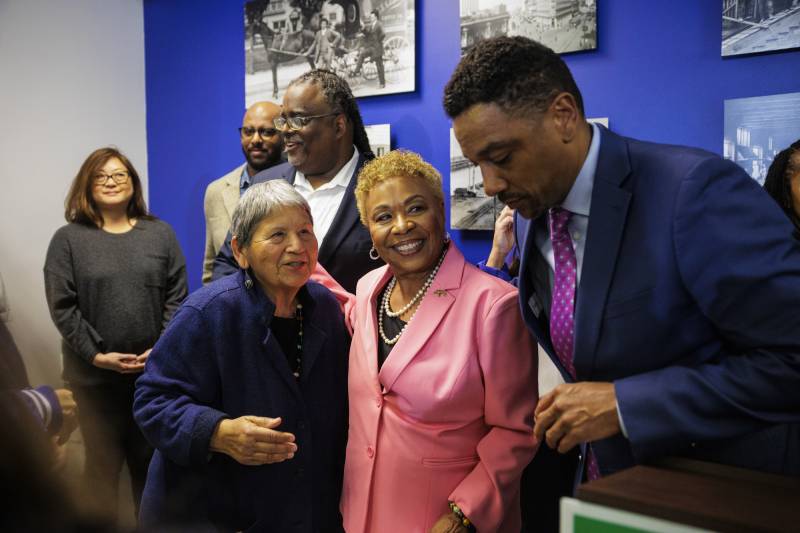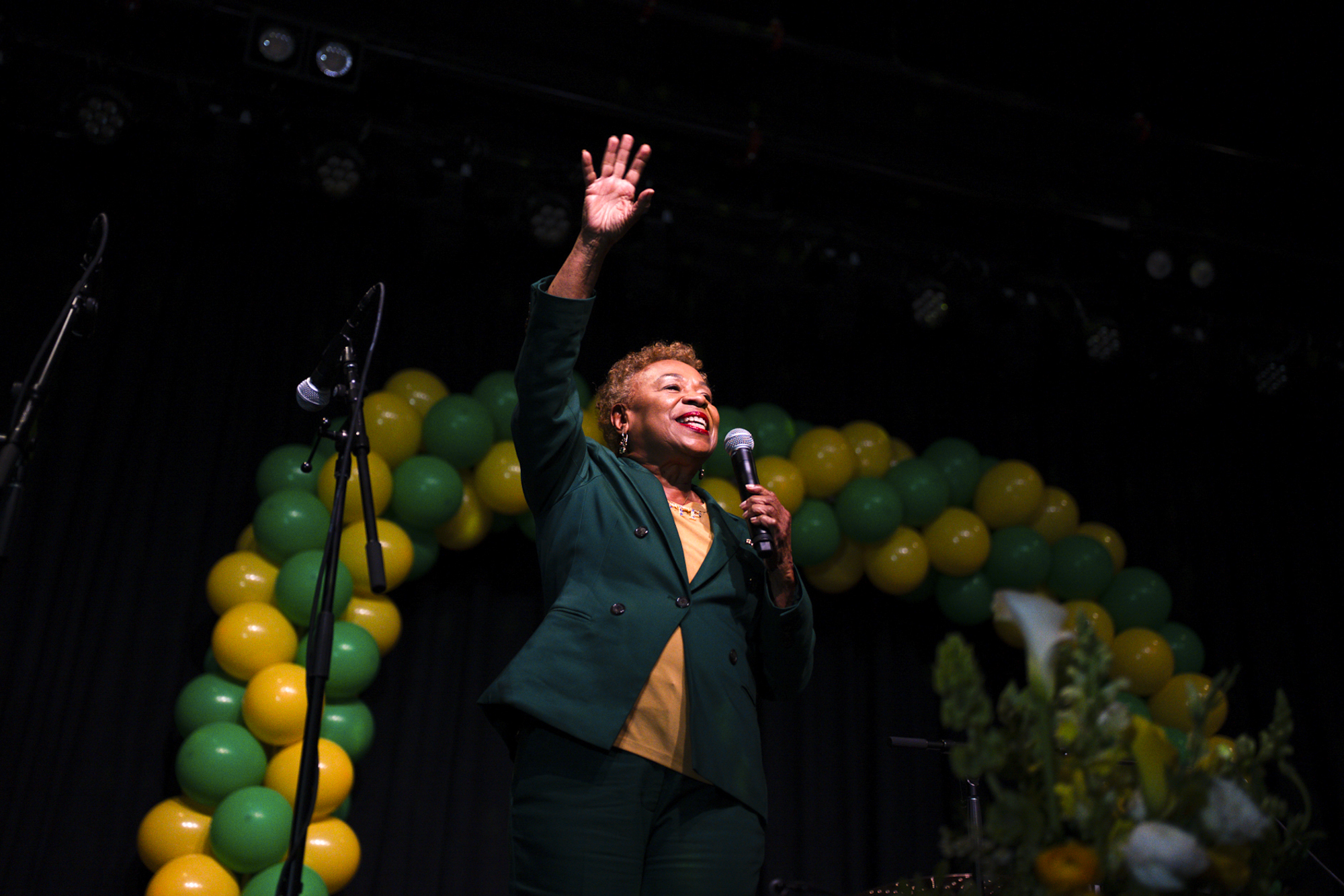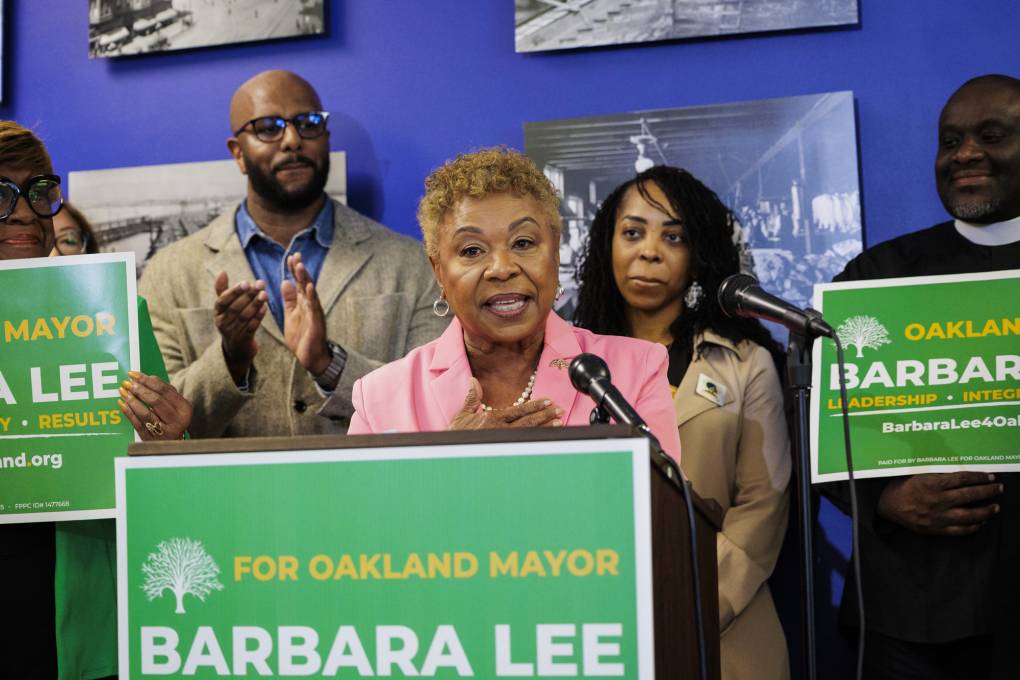“I will govern with the same leadership I’ve engaged in my entire career: with transparency, integrity and accountability; with unwavering focus on the results you expect and deserve; with an ability to bring together people who do not always agree but believe in a better Oakland,” Lee said Monday in her first remarks as mayor-elect.
Taylor was largely backed by business and tech interests and had strong support from proponents of Thao’s recall campaign (which he supported and Lee opposed). He gained unexpected traction by casting himself as a tough-on-crime moderate from outside the political establishment who had the acumen to “fix” a “broken” city.
Ultimately, Taylor was unable to win over Oakland’s vast flatlands, where progressive politics still dominate and unions continue to wield influence.
“The flats really did align more with her ideological view of the world,” said John Whitehurst, a longtime political consultant in Oakland. “The flats of Oakland are some of the most progressive areas in America. And so, Barbara Lee spoke for them.”
Whitehurst said Lee, who ran unsuccessfully for a U.S. Senate seat last year, might have fallen short in Oakland as well if not for the strong backing of powerful labor groups in the city — including SEIU Local 1021, the Alameda Labor Council and the Oakland firefighters union — and their aggressive canvassing operations in working class communities.
Justin Berton, who served as an aide to former Mayor Libby Schaaf, said Lee was disadvantaged by Thao’s failure to broaden Oakland’s progressive tent.
“This election showed that Loren Taylor had incredibly strong support in the hills, where people voted for him over Sheng Thao in 2022,” he said.
But Taylor was unable to parlay that support in the liberal strongholds that soured on Thao last year, Berton added.
“One thing that comes with support from unions that Barbara Lee had was an aggressive ground campaign,” he said. “So that’s knocking on doors, doing get-out-the-vote drives over weekends. That’s a very powerful organizing mechanism.”
Berton said Lee has a tough job ahead of her, but one that could be “a golden opportunity.”
“When you have the support she showed in the flats and across the city, and you have this opportunity to win more support in the hills, it can become a unified city as she has promised,” he said.



